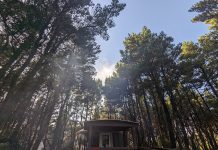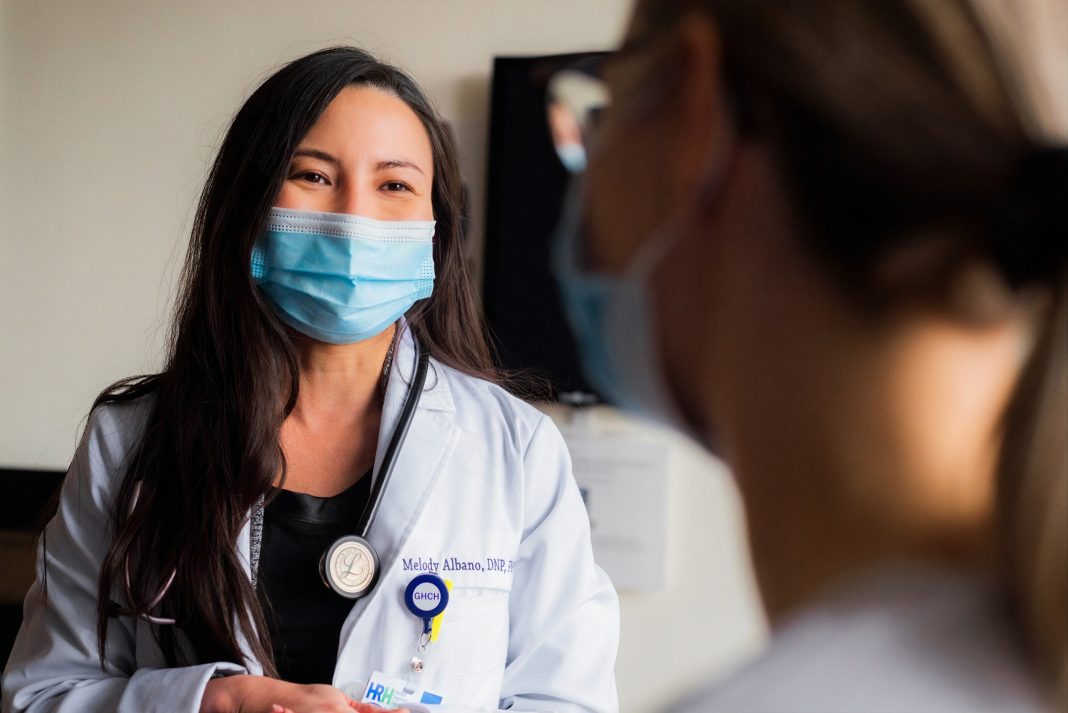Whether school of fish, conspiracy of lemurs, or class of eager students, groups working together make the world go round. At Harbor Regional Health (HRH) Family Medicine in Aberdeen, they’ve recently implemented a partnership with the University of Washington to create a new group: a fellowship of nurses.
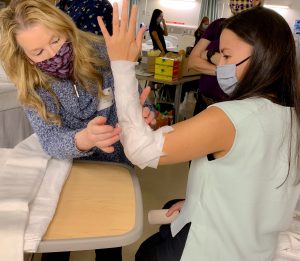
The UW Premera Rural Nursing Health Initiative was created to fill a very real need. Grant Manager for the RNHI at the University of Washington School of Nursing Rebecca Wood explains that its mission “is to enhance clinical placements for advanced registered nurse practitioner (ARNP) students and to develop an innovative ARNP postgraduate fellowship program to ensure a robust pipeline and network of primary care ARNPs to improve health outcomes and access in rural Washington communities.”
This is because “Fellowship/Residency Programs are gaining in popularity across the nation and Washington state has led the way,” says Wood. “More and more ARNP graduates are actively seeking this type of continued learning opportunity and applications for the limited places are very competitive. ARNPs who have completed a year-long Fellowship have demonstrated that they are more confident, more competent, and much more likely to stay employed in that particular clinical setting and community.”
Ron Oman, ARNP is the main HRH preceptor for the program and supports the nurses through their first year in rural practice. “I provide clinical oversight to both Fellows, and I am here to support both patients who are being seen in clinic and Fellows who see them,” says Oman. “My role is to help the Fellows navigate the ins and outs of available resources and the nuances of clinical practice in a rural community such as Grays Harbor. My goal is to help build confidence, skills, and adaptability with our new providers, and to give them an experience of wanting to be a part of our work/life/community.”
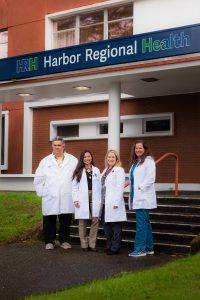
This training uses nurses who are “licensed medical providers who can diagnose, prescribe and treat both chronic and acute illnesses,” says Oman. “The Fellowship program gives additional support through practice experience and oversight by a provider such as myself who can help answer questions, guide, and demonstrate skills needed to be successful in transitioning from graduate level to seasoned provider. It is like having a professional coach who can help you navigate both the complexities and challenges that are presented on a daily basis in our clinics.”
Preceptor and ARNP Katha Gazda likes how the program offers a bonus to already skilled nurses. “The nurse practitioners have an immersive experience by seeing patients in the clinic as fully licensed, practicing nurse practitioners but they have the benefit to additional training specific to rural health and specialties. Rather than being put into a sink or swim situation, they are supported with additional training, preceptors and other resources as they start their new role.”
Melody Albano, ARNP is one of the current Nurse Practitioner Fellows. “I think programs that ease the transition from student to clinician are beneficial for both immediate and long-term practice, not to mention overall satisfaction in the profession. New graduates can feel overwhelmed with job expectations but the extra training through the Fellowship focuses on giving us the time and support to develop our skills as clinicians.”
And like Oman says, the program allows her to build confidence in a real-world setting. “Knowing that there is someone dedicated to support and enhance your clinical decision making takes away any barriers to ask for help,” says Albano. “In school, they promote collaborative decision making but I think this Fellowship helps us be more comfortable in actually applying that in our practice. The Fellowship also continues to heavily emphasize continued learning and I think that extra knowledge support contributes to our competencies as clinicians.”
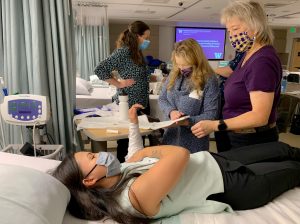
More than that, the Fellowship broadened horizons. “I never thought I would enjoy working in rural health as much as I do,” continues Albano. “For now, I can’t imagine working in any other environment. I encourage every nurse practitioner student to advocate for at least one clinical rotation in rural health because I believe they will have the opportunity to do and practice so much more as opposed to better resourced environments.”
Diane Marines, ARNP is also a Fellow in the program. She finds that “it provides the much-needed support and guidance while just starting into practice. Transitioning from RN to nurse practitioner can be intimidating, stressful and one can lack confidence in one’s abilities and skills. The opportunity to have an experienced provider available as a resource and sounding board for feedback is wonderful especially for starting in rural health. Rural health can have many challenges, learning how to navigate them is very important to being a successful practitioner.”
Working with the preceptors in a hands-on environment has been a powerful learning tool. “Our preceptors are mentors and coaches guiding us through our first year as a family nurse practitioner,” says Marines. “We are able to see patients three days a week in the family practice clinic, which provides great active learning and skill building. We also have the opportunity to spend time in specialty clinics such as urology, orthopedics, OB/GYN and addiction medicine to name a few. This allows us to connect with specialty providers in the community so we can provide better collaborative care for our patients.”
“It is estimated that almost one third of new nurses leave their job in the first year of practice,” says Oman. “We are currently experiencing both a nursing shortage and physician shortage. Having a program like this Fellowship helps communities like ours by offering potential providers the support and guidance that solidifies a successful transition in medicine. It creates a win/win situation for the provider and our community by helping the provider succeed in practice and we gain additional providers in our community.” And that’s a successful partnership for everyone involved.
To learn more, visit the Harbor Regional Health website.
Sponsored


































